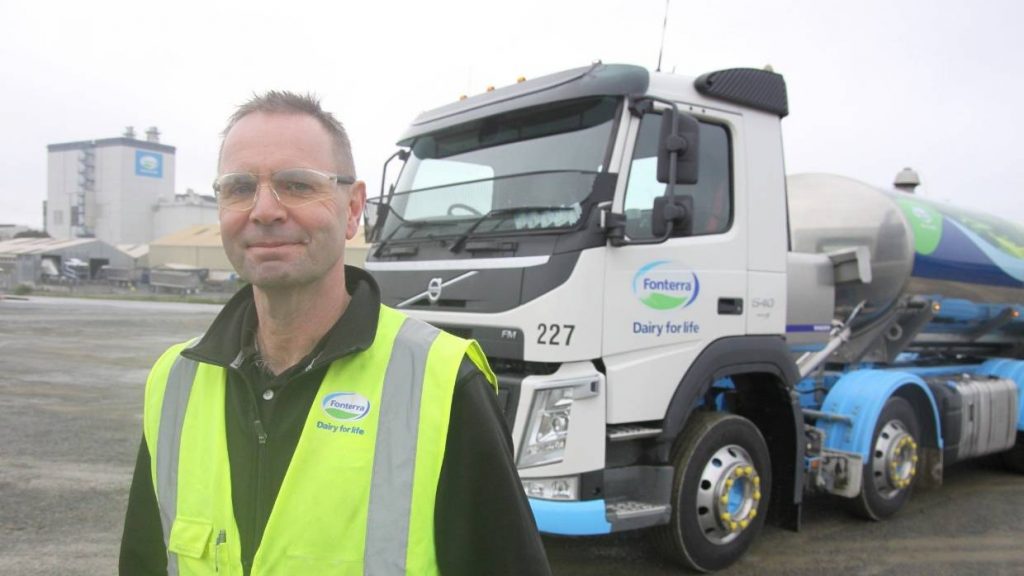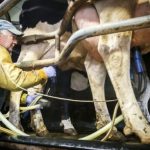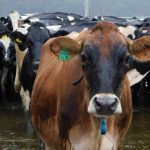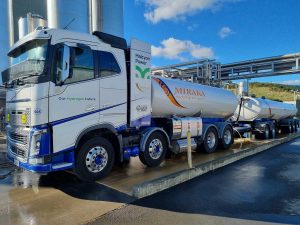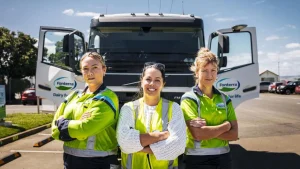
Safety is paramount, not just for the driver but also for all other users sharing the motorways and rural roads around the North Island.
A tanker driver’s job is more than testing and collecting milk at the farmgate.
Drivers are also trained to be first responders at road emergencies, their trucks are equipped with fire extinguishers and first-aid kits.
In the past they’ve also transported water to drought-hit communities and are a key part of transport safety programmes for others.
Now, the company’s focus on reducing emissions is starting to get buy-in from drivers, who are embracing technology which shows them how to change their habits behind the wheel to use less fuel.
The company has about 1600 drivers across New Zealand, and a milk tanker fleet of 484 that travel nearly 100 million km a year.
There are 36 tankers and 128 drivers working at the Te Awamutu depot and collectively they travel about 6.5 million km per season, or roughly between 300km-500km per day.
Nearly 200 drivers are recruited each year for depots around the country including Te Awamutu, which recently won Fonterra’s transport award for adopting more economical driving techniques.
In the past year, drivers saved 16,000 litres of fuel and more than 45 tonnes of CO2 emissions.
Simon Aykroyd is a driver trainer assessor at Te Awamutu and was pleased with the result.
He spent six years driving a Fonterra milk tanker before moving into driver training.
“The technology of these trucks has improved so much over the years and now it provides us with real-time data to show how the drivers have performed on each trip.”
The Tanker Activity Management System, or TAMS, on-board each truck collects data on fuel use, braking, cornering, g-force or rate of acceleration and speed, for example.
“We can then share the data with the drivers to help coach them, to adopt better driving styles.
“It’s all about the conversation, we don’t want to be chasing anyone around with a big stick trying to get them to comply.”
Peer pressure and the competitive nature of the drivers had a lot to do with the success around reducing emissions.
“Our drivers average about 400km around the North Island each day. We’ve got three drivers per truck and you could have one driver performing well, and another not so well.
“No one wants to be at the bottom so it’s about having a look at the numbers, sharing the data, to encourage everyone to be the best they can.”
Fonterra had been working with Z Energy to introduce biodiesel to its fleet as part of its strategy to reduce emissions by 30 per cent across its global operations by 2030 and net zero by 2050.
But in a statement, Fonterra’s National Transport and Logistics General Manager Barry McColl said using biodiesel had become “uneconomic”.
Z Energy stopped production at its Manukau plant in March, after a sharp rise in global prices for tallow, the fat waste product from meatworks used to make biodiesel.
Then, diesel prices came down during the Covid-19 alert level 4.
“They (Z Energy) are not planning to reopen but have offered to import biodiesel at a significantly higher price,” McColl said.
“Given it is not manufactured in New Zealand, which was why we were supporting it, we have said no at this stage but discussion is ongoing.”
Fonterra was also keeping an eye on electric and hydrogen heavy vehicle transport.
“… but at this stage super heavy duty and truck-trailer configuration is still some way off,” McColl said.
Nikola and Tesla were leading work in this area in the North American market where there were thousands of trucks sold every year.
“This is a complex subject, but we regularly review what market developments are going on, however there is nothing practical at this stage.
“The hydrogen trucks promoted by Hyundai at present are of interest, but a long way from being in the New Zealand market.”
